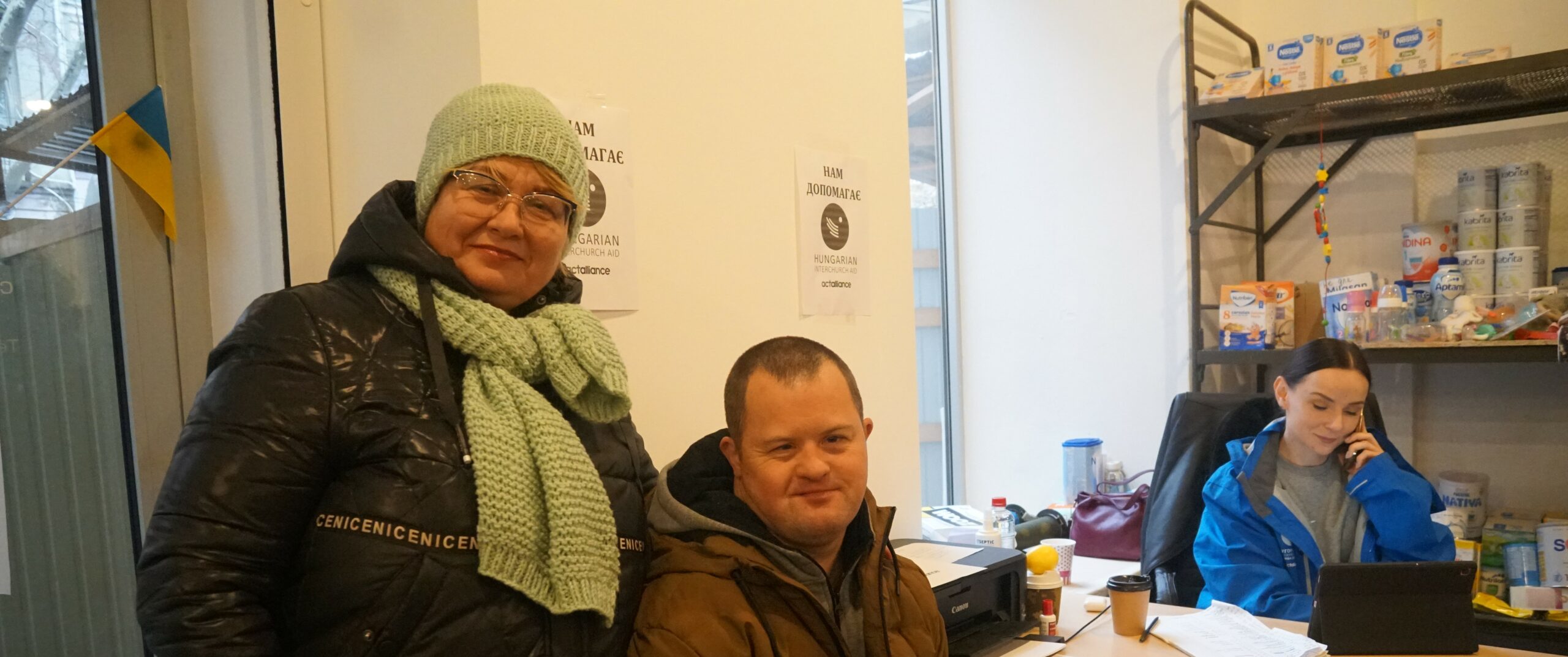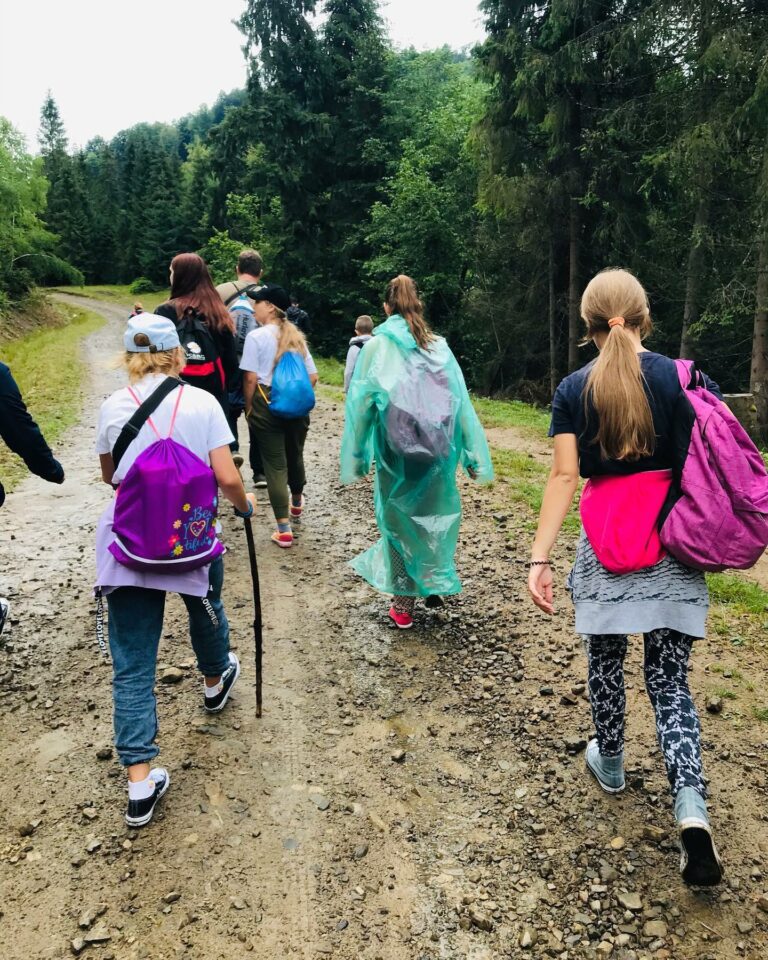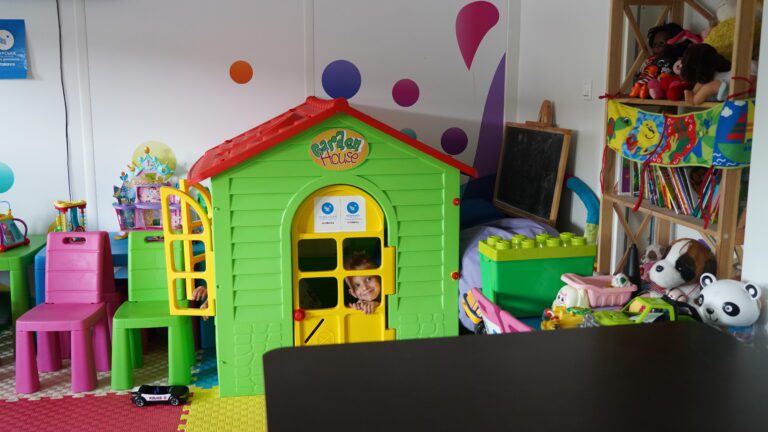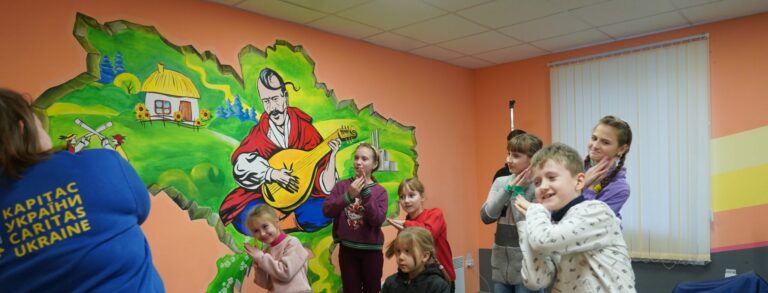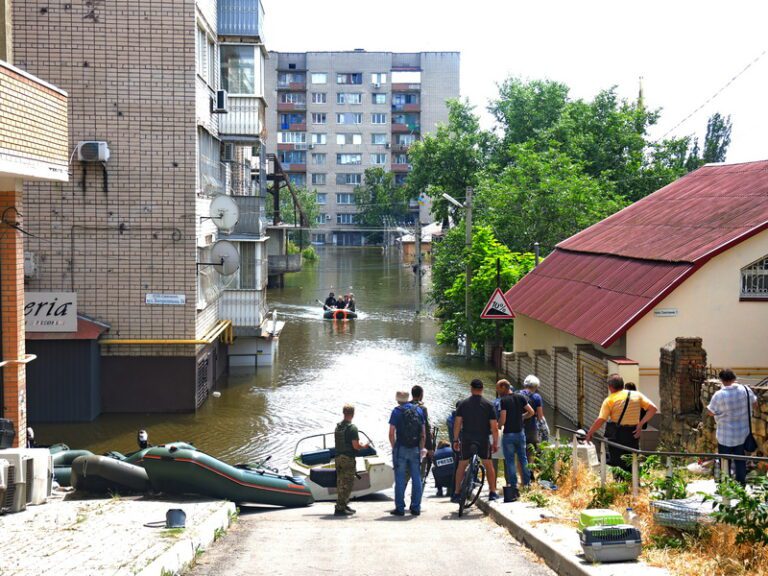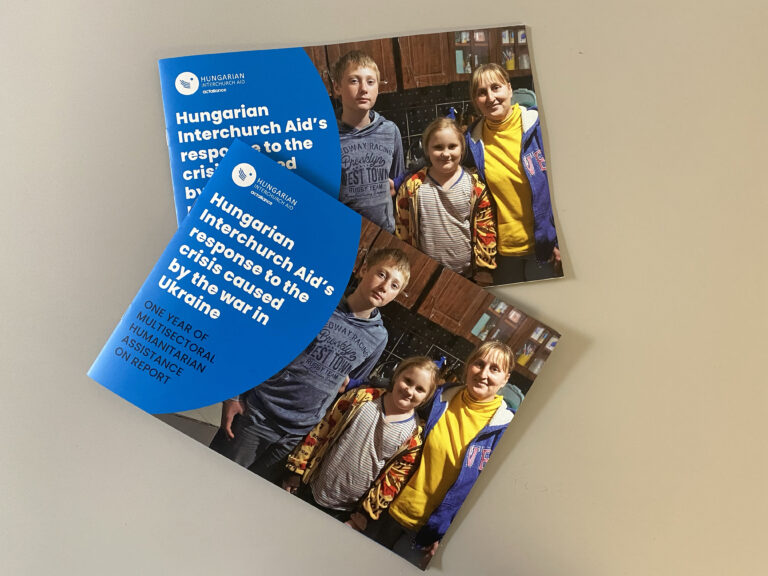The hardships of freedom
After the Russian withdrawal, the people of Kherson face new hardships in exchange for their freedom. The town was cut off from all utilities by Russian forces, leaving residents without electricity, water and heating as winter sets in. Although many are choosing to stay even in the almost total absence of services, the conditions in Kherson are forcing thousands to seek shelter in other parts of Ukraine – even if only temporarily. Many of them are planning to stay in Odessa to weather out the humanitarian crisis in their hometown, which is slowly but surely easing thanks to the humanitarian aid provided by local and international aid organisations. Together with its local partners, Hungarian Interchurch Aid (HIA) is also on the spot – helping those in need both in Kherson as well as in Odessa.
“What was it like during the occupation?”
This is the number one question for all those who have lived through the Russian occupation, a question people with first-hand experience rarely refuse to answer. Everyone has their own story of how the events unfolding after the 24th of February affected their lives, oftentimes completely changing their situation. Their experiences are still fresh, sometimes still hurtful, so talking about them is a way for them to cope with the stress and horror they had to live through. Even though they have paid a heavy price for it, the people of Kherson we talked to are unanimous in welcoming the liberation of their city.
“Of course it was difficult. Especially with him”
– says Natalia, pointing to her son Sashko, who has Down syndrome. We were able to talk to her in the office of the HIA’s local partner in Odessa, where food kits are distributed to IDPs from Kherson. The mother’s account echoes the stories of people we met in Kherson, those who lived through the occupation. According to her, life came to a standstill, jobs were lost and people were afraid to go out on the streets in fear of the brutal Russian soldiers and the secret service. She claims that some have simply disappeared or were imprisoned, and many were “evacuated” to the Russian Federation.
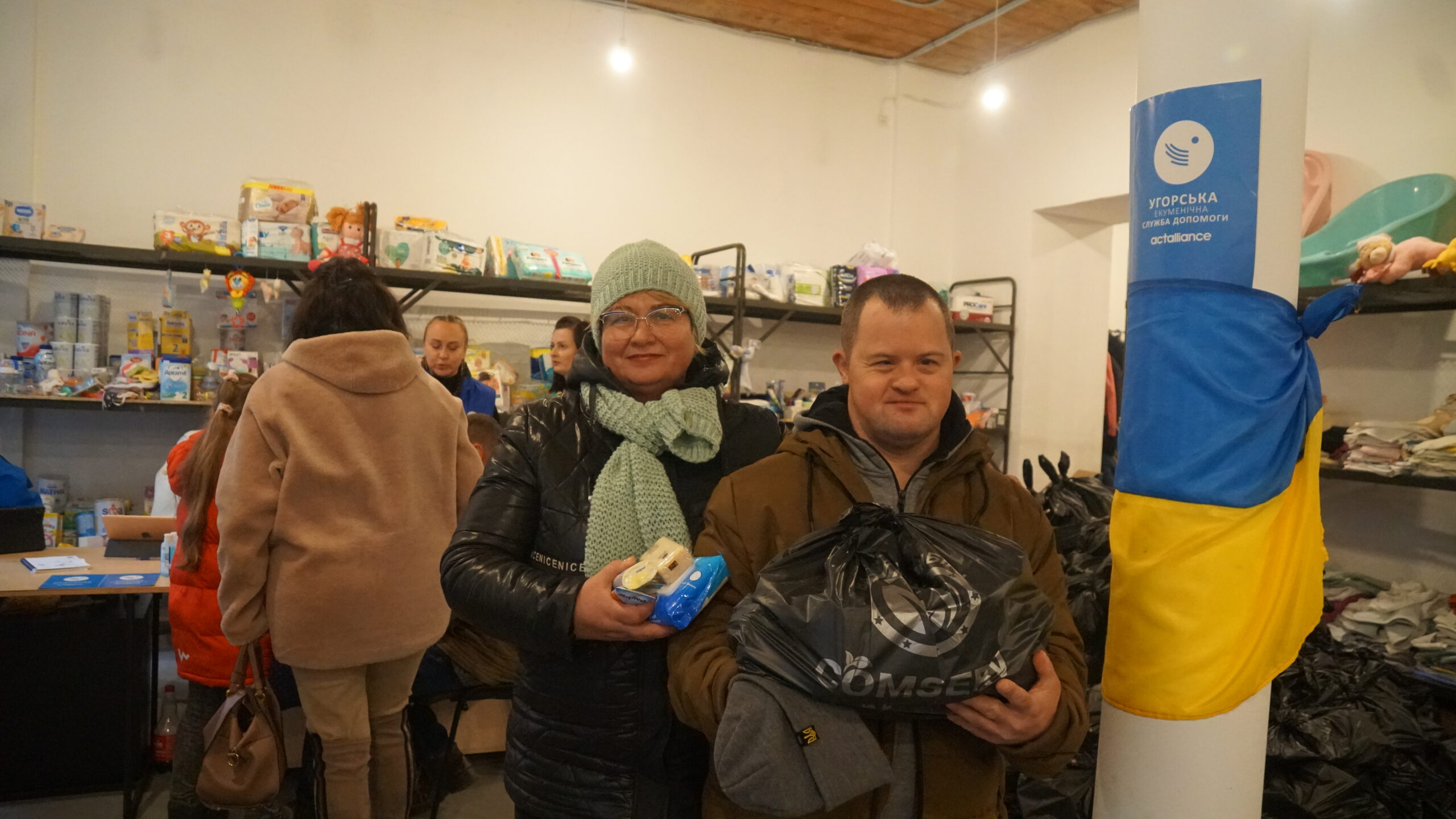

Natalia found it particularly difficult to make Sashko understand how to adapt to the rules during occupation. Before the war, Sashko used to go out on his own to run small errands, such as shopping. During the occupation, however, Natalia needed to be always alert, and never took her eyes off her son. Not really because of the occupiers: she feared that Sashko would suddenly lose his temper and get himself into trouble. According to her, her son couldn’t bear to see his hometown invaded and overrun by foreigners.
“I couldn’t leave Sashko at home, so when I had to go out, he came with me. I held onto his arm firmly so he wouldn’t do anything silly. As soon as he saw a Russian soldier he tried to get loose and wanted to attack him.”- says Natalia, while Sashko smiles like a child that knows they have done something bad.
Natalia and Sashko are clearly happy to have their freedom back, even if it has come at a high price. The occupation has left the mother – who is raising her son alone – without income. Ukrainian social assistance has also not arrived in the months when the Russians controlled the city. After their withdrawal, Natalia decided to use the little money she had left to rent a small two-room apartment in Odessa with another family to stay there until it was safe to return. The lack of services and the constant threat of Russian artillery barrage on the city makes this impossible for the time being.
“It is still a lot better than it was under the occupation,” says Natalia with a sincere smile. “Many people help us, so we don’t worry. Compared to the occupation, our current problems are negligible. Thank you for your help, too, it means a lot in this situation.”
Hungarian Interchurch Aid was among the first international aid organisations to help refugees and people in need both in Ukraine and Hungary. It has been present in Ukraine for 25 years – since war broke out, it has helped nearly 200 thousand people in 19 regions of Ukraine, delivering more than 1,300 tonnes of aid to the war-torn country. HIA has recently distributed around 30 tonnes of emergency aid to Kherson to help alleviate the humanitarian crisis. As thousands of people needed to flee the city due to the humanitarian situation only deteriorating due to the onset of winter, HIA is also distributing aid in Odessa with the help of its local partners.

